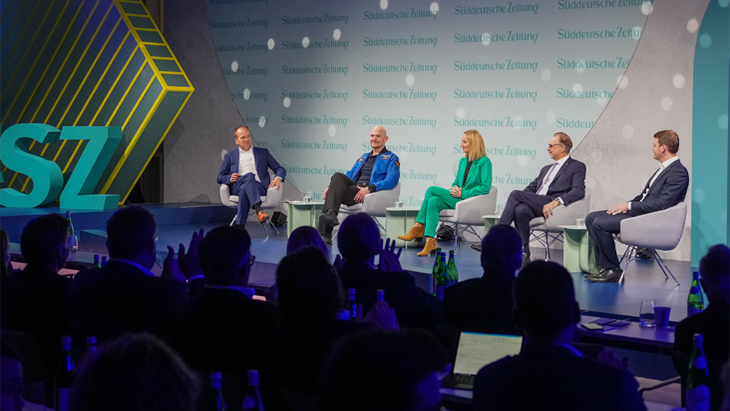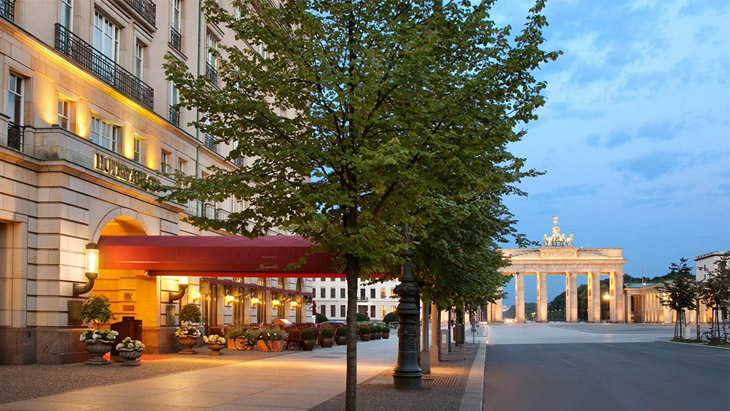Die Welt erlebt gerade einen gewaltigen Umbruch – was tun in dieser Lage?
Darum wird sich der 18. SZ Wirtschaftsgipfel drehen. Wir diskutieren: welche Folgen die Wahlen in Europa und den USA für Politik und Wirtschaft haben werden; wie Künstliche Intelligenz, Kernfusion und andere Technologien uns voranbringen könnten; was die Kriege für die Welt und den Welthandel bedeuten. Erleben Sie über 60 namhafte Referentinnen und Referenten aus Politik, Unternehmen, Wissenschaft und Kultur auf der Bühne bei Deutschlands großem Wirtschaftskongress.
SZ Wirtschaftsgipfel
11. bis 13. November 2024
im Hotel Adlon in Berlin und digital

Sichern Sie sich ihr Ticket
für den 18. SZ Wirtschaftsgipfel am 11. bis 13. November 2024.
Informationen
Veranstaltungsort

Hotel Adlon Kempinski Berlin
Der SZ Wirtschaftsgipfel findet seit über 15 Jahren im Hotel Adlon Kempinski statt. Das legendäre Hotel befindet sich direkt am Brandenburger Tor, dem historischen Wahrzeichen Berlins.
- Unter den Linden 77
10117 Berlin
Werden Sie unser Partner 2024!
Werden Sie unser Partner! Profitieren Sie als Partner des SZ Wirtschaftsgipfel von Reichweite, Kontext und unserem Netzwerk.
Rückblick 2023
Gespaltene Welt, geeintes Europa? – Zeit für einen Neuanfang

Auf unserer Rückblickseite für 2023 finden Sie Highlight-Impressionen und die gesamte Berichterstattung der Süddeutschen Zeitung aus drei Tagen Kongress und zwei Abendveranstaltungen.
Von 2007 bis heute
Auf dem Podium diskutieren jedes Jahr über 60 Spitzenkräfte aus Wirtschaft, Politik, Kultur, Wissenschaft und Sport. Hier finden Sie alle Referenten, die seit 2007 auf Deutschlands großem Wirtschaftskongress gesprochen haben.